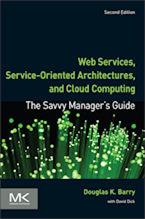Object Management Group (OMG)
The Object Management Group, Inc. (OMG) is an international organization supported by over 800 members, including information system vendors, software developers and users. Founded in 1989, the OMG promotes the theory and practice of object-oriented technology in software development. The organization's charter includes the establishment of industry guidelines and object management specifications to provide a common framework for application development. Primary goals are the reusability, portability, and interoperability of object-based software in distributed, heterogeneous environments. Conformance to these specifications will make it possible to develop a heterogeneous applications environment across all major hardware platforms and operating systems.
OMG specifications described on this site:
- Business Process Modeling Notation (BPMN)
- Common Warehouse Meta-model (CWM)
- CORBA
- Meta-Object Facility (MOF)
- Model Driven Architecture (MDA)
- Object Request Broker (ORB)
- OMG Interface Definition Language (IDL)
- Unified Modeling Language (UML)
- XML Metadata Interchange (XMI)
More information: OMG website.
Context for Object Management Group (OMG)
Related Articles for Object Management Group (OMG)
- Business Process Modeling Initiative (BPMI.org)
- Data Center Markup Language (DCML) Interest Group
- Distributed Management Task Force (DMTF)
- electronic business using eXtensible Markup Language (ebXML)
- Information Technology Research and Standardization Center (INSTAC)
- Internet Engineering Task Force (IETF)
- Java Community Process (JCP)
- Liberty Alliance Project
- Open Applications Group, Inc. (OAGi)
- Open Geospatial Consortium (OGC)
- The Open Group
- Organization for the Advancement of Structured Information Standards (OASIS)
- RosettaNet
- Web Services Interoperability Organization (WS-I)
- Workflow Management Coalition (WfMC)
- World Wide Web Consortium (W3C)
- www.udef.com
- XBRL International
- XML/EDI Group
Author
Douglas K Barry
Principal
You may use this material for your work or classes. Reprint Policy. Be sure to check the menu at the left for other articles available on this site.
The Savvy Manager's Guide
Douglas K Barry is also the author of a book that explains Web Services, service-oriented architecture, and Cloud Computing in an easy-to-understand, non-technical manner.
Web Services, Service-Oriented Architectures, and Cloud Computing: The Savvy Manager's Guide (Second Edition)
by Douglas K Barry with David Dick
This is a guide for the savvy manager who wants to capitalize on the wave of change that is occurring with Web Services, service-oriented architecture, and—more recently—Cloud Computing. The changes wrought by these technologies will require both a basic grasp of the technologies and an effective way to deal with how these changes will affect the people who build and use the systems in our organizations. This book covers both issues. Managers at all levels of all organizations must be aware of both the changes that we are now seeing and ways to deal with issues created by those changes.

